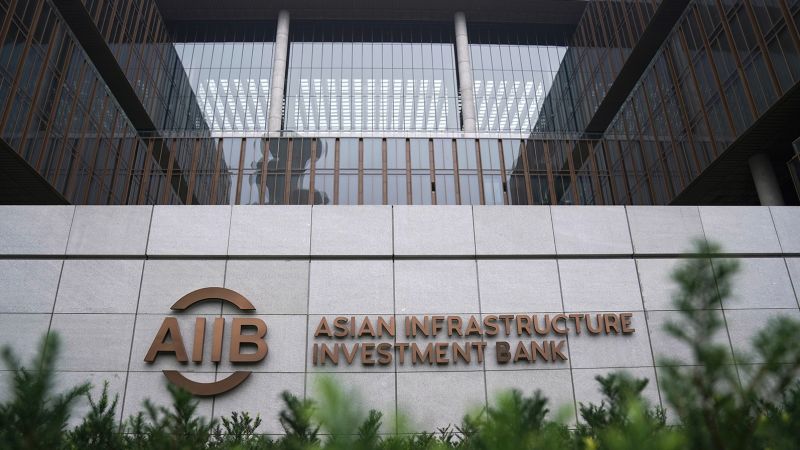Canada is suspending ties with a Beijing-based multinational lender — billed as Asia’s answer to the World Bank — pending a review of claims that the Chinese Communist Party has infiltrated the institution.
The allegations were made by Bob Pickard, a Canadian citizen who resigned as global head of communications for the Asian Infrastructure Investment Bank (AIIB) earlier this week.
The Canadian government announced Wednesday it would “immediately halt all government-led activity” with the AIIB, a development bank led by China that also counts G7 countries such as the United Kingdom, France and Germany as members.
In a speech in Ottawa, Canadian Finance Minister Chrystia Freeland said she had ordered the freeze — and an inquiry — after learning of Pickard’s resignation.
Pickard announced his exit Wednesday, saying on Twitter that “as a patriotic Canadian, this was my only course.”
“The bank is dominated by Communist Party members and also has one of the most toxic cultures imaginable,” he added, without elaborating. “I don’t believe that my country’s interests are served by its AIIB membership.”
Pickard did not provide evidence to support the allegations, nor immediately respond Thursday to a request for further comment or an interview.
In a statement, the AIIB called his comments “baseless and disappointing.”
“Throughout this time, the bank has supported and empowered him to perform his role,” it said.
The AIIB began operations in 2016 as the brainchild of Chinese leader Xi Jinping, and was designed to provide investment in infrastructure and regional networks. Beijing was frustrated at its lack of influence at the World Bank, based in Washington, DC, and the Asian Development Bank, where Japan is a major force.
Skeptical about how the bank would be run, and seeking to limit its effectiveness, the United States quietly encouraged allies not to participate. But the United Kingdom was first to break ranks, announcing in 2015 that it would apply for membership. The United States is not a member.
Canada joined the AIIB in 2018, and has since pledged a total of $995.4 million, according to the bank.
In her remarks Wednesday, Freeland said the government review would be expedited, and that she was “not ruling out any outcome following its completion.” She said Canada would discuss the matter with allies and partners who are also members of the bank.
Freeland also shared views on China’s international role more broadly, saying the world’s second largest economy “must necessarily play a role in addressing common global challenges.”
“However, as the world’s democracies work to de-risk our economies by limiting our strategic vulnerabilities to authoritarian regimes, we must likewise be clear about the means through which these regimes exercise their influence,” she continued.
In recent years, Western companies have been under pressure to reduce the risk to their businesses by diversifying supply chains or operations beyond China. That’s been driven by a number of factors, including fears that Beijing could attack Taiwan amid ongoing tension between Beijing and Washington.
In a statement Wednesday, the Chinese embassy in Canada called the remarks by Pickard “outright lies” that sought to sensationalize his departure.
China “has always followed multilateral rules and procedures,” an embassy spokesperson said, pushing back on the notion that there was a need to “de-risk” from the country.
Despite initially being seen as a rival to the World Bank, the two institutions have since partnered together, providing joint financing for dozens of projects. In March, AIIB President Jin Liqun met with new World Bank President Ajay Banga in Beijing to discuss deepening ties.
The AIIB counts China as by far its biggest backer, with $29.8 billion pledged to the bank.
Overall, the organization has disclosed $100 billion in capital, with sizable commitments from the United Kingdom, France and Germany and others.
Read the full article here
